Dhaka’s handicrafts now in global market
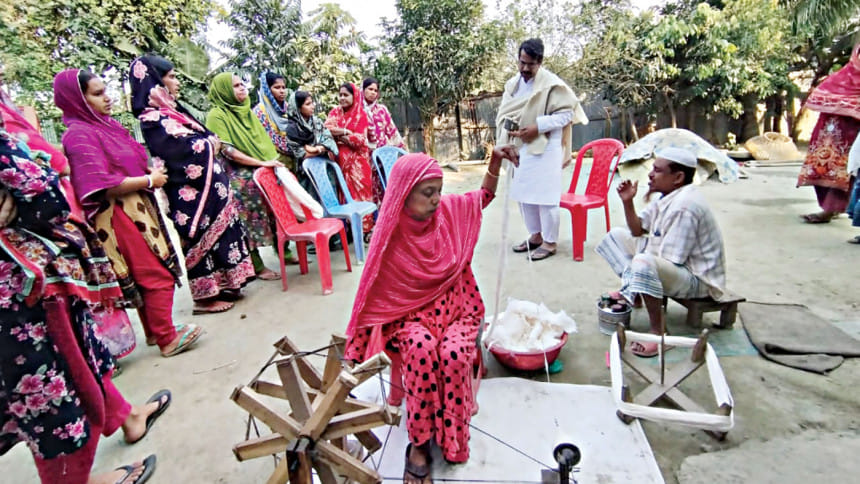
Tucked inside Baitul Aman Housing Society at Adabor is the factory outlet of "Hand Touch" -- a handicrafts venture with a focus on recycling and catering to a niche market of hand-woven textiles in Bangladesh and abroad.
The endeavour, Hand Touch by Mohammad Ali Khan, has been in business since 2002 and its speciality is in home décor and textiles made by Bangladeshi women. The fabrics of choice are hand-woven materials like cotton, silk, and local fibres namely khadi, endi silk, jute, and others.
While clothing like local saris and three pieces are solely for the local market in Dhaka, the household products are of export quality and they have already grabbed the attention of the European market -- especially in countries like the Netherlands, Sweden, France, and Italy. Their products are also exported to Canada, Japan, and Saudi Arabia…even as far as Uruguay!

"Neel Poddo Crafts" is an online page of Fahmida Sultana. She buys wholesale products from Hand Touch like khadi and taant saris and sells them through social media pages. There are about 100 or more such Dhaka-based online sites that sell products bought in bulk from Home Touch.
Graduating in silk technology with weaving as a minor subject, Khan has been experimenting with fabrics made by local artisans. His most recent experiment is the double-khadi weave, where he worked on the warp and weft of the loom with handmade, recycled cotton threads.
"It is not an easy task. After many tests and trials, I got the fabric done. It was for an order of throws and cushion covers in the Netherlands. I had them printed in black, zigzag patterns and the final product looks incredible.
"What makes me happy is that it carries the 'Made in Bangladesh' tag. Just like the RMG sector, we can work wonders with our cottage industry handicrafts," said Khan.
Currently, there are 30 or so companies based in Dhaka working to export local products like wicker baskets, table mats, runners, dining cloths, kitchen aprons, napkins, kitchen towels and tote bags made of recycled cloths, jute bags, and mats. Mohammad Ali Khan has two factories in Panchagarh and Manikganj for their production.
"I have 300 producers involved in the cottage industry. I explain my order and give them a sample. Then, the women artisans get the work done maintaining strict quality control," he shared.
"In Cumilla, handmade khadi threads are spun from spinning mill wastage and I collect the garments waste, make cotton out of them, and re-spin them into threads. The khadi products are hand spun and others are woven in machines. Dhaka is buzzing with ventures promoting local crafts and there is a robust online presence of local saris," Khan explained the reason behind the busy outlet.
We know that Pabna is popular for its buti and coarse saris from Dogachi. Tangail has its fine taants, Rupganj boasts timeless Jamdanis, and Mirpur has its gorgeous katans. Similarly, Cumilla has its yarn-based handloom khadi, and Rajshahi has silk.
Needless to say, our heritage weaves, yarns, and handicrafts are still struggling to put their stamp on the global market. So, when you come across such vibrant local businesses exporting and trading in our handmade merchandise in the global markets you most certainly feel elated.

 For all latest news, follow The Daily Star's Google News channel.
For all latest news, follow The Daily Star's Google News channel. 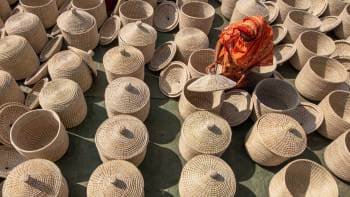


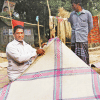

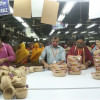

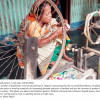


Comments